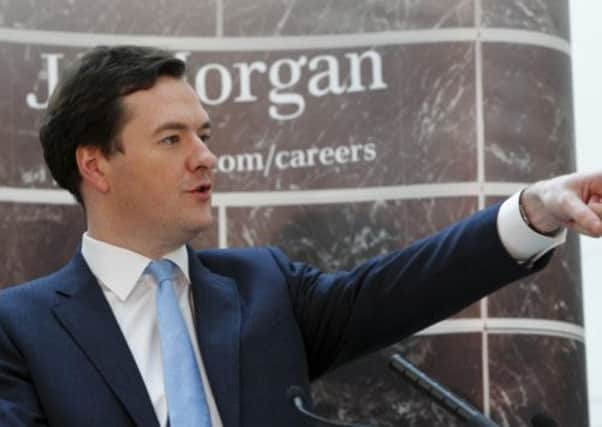‘Break up RBS’ King tells Osborne


The central Bank boss told MPs the Government had failed to take decisive action to overhaul RBS and needed to complete a radical restructure of the bank to create a healthy lender within a year.
He said RBS was holding the wider economy back, but added it was “not beyond the wit of man” to split RBS into a ‘good’ and ‘bad’ bank to ensure the cleaned-up group could support lending and boost economic recovery efforts.
Advertisement
Hide AdAdvertisement
Hide Ad“The lessons of history is that we should face up to it – it’s worth less than we thought and we should accept that and get back to finding a way to create a new RBS that could be a major lender to the UK economy,” he said.
Sir Mervyn’s comments will come as a blow after RBS boss Stephen Hester last week insisted the bank’s return to the private sector was on track and could be completed within two years.
In a hearing with the Parliamentary Commission on Banking Standards, Sir Mervyn said plans should go further than those being led by Mr Hester to reduce RBS’s balance sheet and signalled the Government should take charge to get the bank in a fit state “sooner rather than later”.
He said it was “nonsense” that the Government could run the bank at an arm’s length, given that it is 81 per cent owned by the state.
Advertisement
Hide AdAdvertisement
Hide Ad“Time has passed and aside from reducing the balance sheet, nothing has been achieved – we haven’t managed to get it into the private sector,” said Sir Mervyn.
“It would be much better to accept that it should have been a temporary period only, and the longer this goes on, the more difficult it becomes,” he added.
Sir Mervyn confirmed he had discussed his view on RBS with Mr Osborne, but the Chancellor recently told the commission he believes there are “very considerable obstacles” to splitting RBS in two and backs current plans to instead shrink its balance sheet and focus its activities on the UK.
RBS last week claimed improvements in the core bank would see it return to financial health next year as it reported underlying group operating profits nearly doubling to £3.5bn in 2012 from £1.8bn in 2011.
Advertisement
Hide AdAdvertisement
Hide AdBut bottom-line figures revealed the fifth year of losses since its £45.5bn government bailout in 2008, plunging into the red by £5.2bn in 2012.
The Bank also hit out at European Union plans to impose a cap on banker bonuses, warning that they will fail to rein-in excessive pay and will only force up fixed salaries that cannot be clawed back.
Proposals revealed last week to limit bonuses to a maximum of a year’s salary or double that if explicitly backed by shareholders, will act as a “distraction” to efforts to change the culture of pay within the banking industry, according to Sir Mervyn.
Andrew Bailey, incoming deputy governor at the Bank and chief executive designate of the new Prudential Regulation Authority, added it could set back recent progress made to reduce overall bonus pools, defer awards and claw back past bonuses.
Advertisement
Hide AdAdvertisement
Hide Ad“My concern is that in setting this limit, it runs the risk of pushing up fixed remuneration – that’s cash out of the door and it’s much harder to get that back if needed,” said Mr Bailey.
Sir Mervyn said the EU plans are going in the “wrong direction”.
Rather than imposing bonus caps, regulators must be focusing their efforts on repairing the banking system and ensuring banks are strengthened, he added.
“Banks are still too important or too big to fail and that is the biggest challenge facing the new PRA,” Sir Mervyn said.